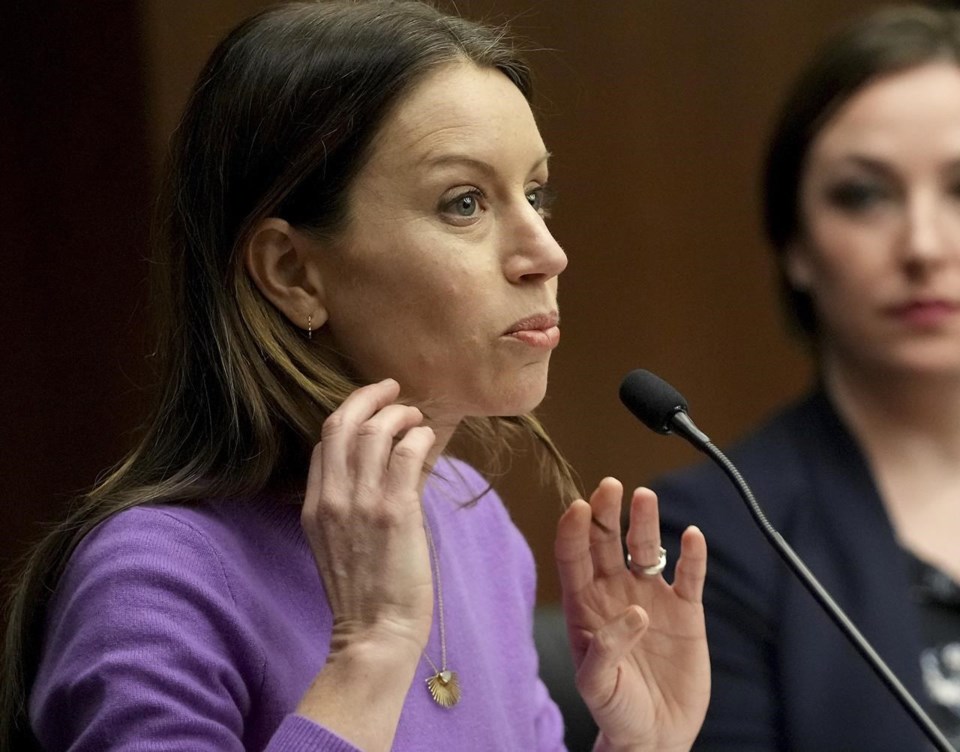ST. PAUL, Minn. (AP) — A bill to strengthen abortion rights in Minnesota is on the fast track to becoming law as it passed its first test Thursday.
A House health panel approved the legislation, which codifies protections into state statutes, 11-8 on just the third day of the 2023 session and sent it to its next committee stop on an expedited path to a House floor vote. Backers hope to put the bill on Democratic Gov. Tim Walz's desk for his signature by the end of the month.
As lawmakers across the country reconvene, they're getting their first chances to take up key abortion proposals in the six months since the U.S. Supreme Court overturned Roe v. Wade — and left the question of whether abortion is legal to the states to determine. Nationwide, scores of bills are in the pipeline that would either expand or restrict access.
On Tuesday, the Food and Drug Administration finalized a rule change that broadens availability of abortion pills at pharmacies, but legal experts foresee years of court battles over access to the pills as abortion-rights proponents bring test cases to challenge state restrictions.
Democrats in Minnesota and across the country ran on strong platforms of strengthening abortion rights in the wake of the Dobbs decision. They credit the backlash for their takeover of the Minnesota Senate, which gave the party full control of the Legislature for the first time in eight years and what their leaders say is the body's first ever majority that supports abortion rights.
Under a 1995 state Supreme Court decision, abortion rights are already protected in Minnesota. A district judge last summer declared that several restrictions that were enacted since that ruling violated the state constitution — including a waiting period and a parental notification requirement.
Now abortion rights supporters want to codify those protections into Minnesota statutes to ensure that future courts can’t roll them back. In both the House and Senate, Democratic leaders on Wednesday assigned the bill a symbolically important first number to the legislation in the session. The bill would establish that “every individual has a fundamental right to make autonomous decisions about the individual's own reproductive health” including abortion and contraception.
“What happened to Roe could happen in Minnesota, too,” warned Democratic Rep. Carlie Kotyza-Witthuhn, of Eden Prairie, the bill's lead author.
But opponents argued that the bill would preclude any restrictions, including on abortions later in pregnancy up to the point of birth, or any role for parents of minors seeking abortions.
“My Democrat colleagues want to advance the most extreme position on abortion that they can possibly advance," said Rep. Anne Neu Brindley, of North Branch. "It is abhorrent.”
Abortion is currently considered illegal at all stages of pregnancy, with various exceptions, in 13 states, including neighboring Wisconsin and South Dakota. Bans in several states, including neighboring North Dakota, remain on hold for the moment pending court challenges.
Minnesota abortion clinics have reported a surge in patients coming from other states as far away as Texas since last summer.
For some of the Republican-led states that have already implemented strict abortion bans, the focus will now be on discouraging residents crossing state borders to secure the procedure. A measure in Texas, for example, would take incentives away from businesses that help employees obtain abortions. For other red states, like Tennessee, GOP leaders are under pressure to clarify abortion bans that don't include exemptions for rape, incest or if the life of the woman is at risk.
Meanwhile, there are pushes to amend state constitutions – including South Carolina, South Dakota and Texas – to enshrine the right to abortion, though such efforts usually require voter approval.
Minnesota House Speaker Melissa Hortman, of Brooklyn Park, said Wednesday that she'd like to see such a constitutional amendment on her state's 2024 ballot, too, but those discussions are still underway and none have been introduced yet this session.
___
Associated Press reporters Geoff Mulvihill in Cherry Hill, New Jersey, and Kimberlee Kruesi, in Nashville, Tennessee, contributed to this story.
Steve Karnowski, The Associated Press



